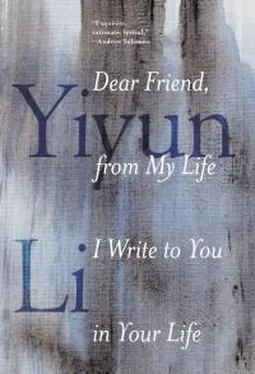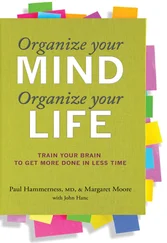Like the memory of my father’s jogging, this incident only came back to me when I tried to answer the interviewer’s question. I can, in retrospect, reconstruct the father’s worry and guilt, his dismay at our inaction; I can question our silence, not out of malice or indifference, but the fear of drawing unnecessary attention to ourselves. We were transitioning out of childhood then. The world—and the world belongs largely to adults—is an untrustworthy place. To be caught by uncertainty is worse when noticed by others. But inevitably the moment comes when one has to differentiate oneself.
For me, it was when, a month into the school year, I was chosen as a librarian’s assistant. Twice a week another student assistant and I stayed until five thirty, giving out books through a window to the many hands that fought to give us slips with Dewey numbers written on them (each student was allowed to put down five numbers at a time and was allowed to check out one book). After closing, we shelved the books, cleaned up the slips left on the floor, and then were allowed our privilege: we could check out two books.
I had not been in a library until then. My literary education had consisted of ancient Chinese poetry from my grandfather’s bookshelf, which I had obsessively memorized, and novels, both Chinese novels and translations, serialized in newspapers, unreliably available because I could not get hold of the newspapers consistently. (I missed half of Resurrection because the second part was not serialized, a loss I took hard in third grade. I also missed a major part of David Copperfield, which I made up for by watching the British miniseries, newly introduced to China, at our neighbor’s place—we didn’t own a television set then.)
Within a few months, I had finished all the books on the literature shelves (the 800s, as I began to think of them). They were of uneven quality, good only for the palate of a hungry mind. Not much is retained. In fact, I remember only two books.
The first is an eighteenth-century novel in verse, The Tale of Renewed Connections (the translation of the title, which is mine, does not catch its essence entirely, though I prefer it to the title of the TV adaptation, Eternal Happiness ). The author, Chen Duansheng, was born to an affluent family of literary pedigree. She began to compose the book at seventeen or eighteen to entertain herself, her mother, and her sister, and within two years finished sixteen volumes. When her mother died, she stopped writing for ten years, and only resumed when her husband was exiled for a political reason. She died in her forties, leaving the novel unfinished. Two other authors—less talented, as I was quick to judge—wrote three more volumes. Except for the first reading, I always stopped at the end of volume seventeen. One ought to be loyal to whom one deems a friend on the page.
The book can be interpreted in many ways—progressive, visionary, revolutionary—but I was not concerned about such things at the time. What captured me was the never-ending drama. A daughter from a wealthy family dressed as a man so she could travel freely and receive a man’s education; she befriended two young men, one the future emperor of China, the other her future fiancé. Entangled in the love triangle was the upheaval of the time. The heroine’s father was persecuted by political enemies; in order to save him, she entered the civil service. Predictably she ranked number one in the Palace Examination, with the surprising consequence of being chosen to become an imperial son-in-law. Her bride turned out to be her long-lost friend, who had tried to kill herself out of heartbreak, and had been saved and adopted by the emperor’s uncle and made into a princess.
I was twelve and was developing a melodramatic streak despite a reputation of being aloof and bookish. I copied and memorized passages from the book, quoting them to myself in all kinds of moods. I felt an acute loss at not being a contemporary of the poetess, as though it would have changed the course of the book’s life, or, even, the poetess’s life. It strikes me now that invisibility, a prerequisite for my tireless conversations with dead authors, is the opposite of what my younger self desired. This wish to find a place in an author’s life and make a difference to a book’s fate: it must have taken bravery and naïveté to trespass.
Any young mind has to fall in love with a book once to learn how to read. My infatuation, fortunately, was ended by another book, written, in contrast to Chen Duansheng’s, at the end of the author’s life. I wonder who purchased for the library the thin, stern-looking volume— Prose Poems by Ivan Turgenev. There was not another book that could match its quality, and it was so rarely requested that against the rules, I renewed it week after week. I did not know anything about Turgenev other than that he was Russian. There were only his words, about conversing skulls, meditative mountains, friends stabbing each other in the back, a woman standing poised before her execution, the author contemplating his own death, and fleeting moments of youth and happiness. I did not know the book had been written toward the end of his career, throughout which he had been criticized for betraying his country, his coolness toward the progressive and the revolutionary, and his insistence on being an apolitical writer.
My mind was porous then, so perhaps the encounter with Turgenev did take place too early. Or perhaps the encounter happened at exactly the right time, a floodgate installed to keep out hopes and wishes indiscriminatingly.
—
A FRIEND, WHO had called me every day while I was in the hospital, continued to call daily afterward. Sometimes I could say nothing, only weep. You must write, she said all the time. I can’t, I said. Your characters deserve to live, she said. I don’t care about them anymore, I said. But I still care about them, she said. This conversation repeated itself, and then one day she suggested that we read Sense and Sensibility together. A few days later, she sent a message quoting Elinor’s plea to Marianne, who refused to be mitigated in her grief: Exert yourself.
Where does one find that self to exert? Only by excluding it did the meaning of exertion become clear to me. My life during this period, other than taking care of my family, was lived almost entirely in reading. I reread everything by Turgenev on my bookshelf: his novels and stories and prose poems and essays and letters, and two biographies, including one by V. S. Pritchett. (I have always been partial to novelists writing biographies—Pritchett, Stefan Zweig, Romain Rolland.) This concentrated reading caused a small shift in my mind. What that shift is, and whether it is real, remain to be confirmed by time, but it feels as though in my long acquaintanceship with Turgenev I have finally come to a place where I can see him as someone from the distant past, the past to which he belonged, and the past in which I read him—as a middle-school student in Beijing, and as a new immigrant to America.
Rereading his collected letters, I came across a wine stain from a meal eaten alone in an empty hotel restaurant in Vancouver. After the meal I rehearsed with a jazz group in a dark theater. I could not hear my voice at all while reading. When I finished, one of them played on a bamboo flute a slow tune: If you miss the train I’m on, you will know that I am gone; you can hear the whistle blow a hundred miles.
“Five Hundred Miles”—which I first heard in Beijing as a teenager, which a platoon mate played on a cheap wooden flute during a march across central China, which I listened to after coming back from the hospitals—the song, like these memories, like Turgenev’s books, belongs to a distant past now.
Читать дальше












